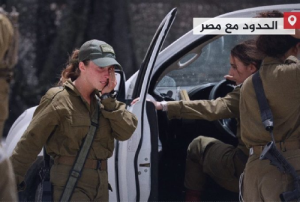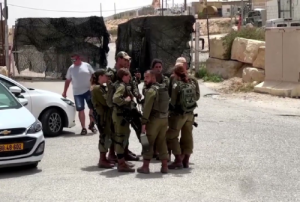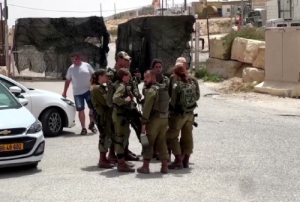
The Israeli army said that it located “several failures” in combat readiness on the border with Egypt.
The Israeli army concluded its investigation into the killing of three of its soldiers by an Egyptian policeman near the Al-Awja border crossing with Egypt on June 3.
The attack was carried out by a young Egyptian officer, Mohammed Salah who had reportedly engaged with the Israeli military on several occasions, before being shot and killed himself.
What Did the Israeli Army Say
The Israeli army said that it located “several failures” in combat readiness on the border with Egypt.
Israeli Army’s Southern Command commander Eliezer Toledano stressed the need to correct these “failures” and draw lessons from them.
The new rules came days after an Egyptian police officer, Mohammad Salah, killed three Israeli soldiers and wounded two others.
READ: Israeli Army Issues New Rules: Shoot Any Suspicious Egyptian Soldier
According to the Israeli army’s statement,
“The investigation revealed that the main causes of the incident were the security corridor in the fence, which was concealed without being closed, and the non-specific practice of the principle of security and guarding in the border area.”

Israeli soldiers near the Egypt-Israel border area following the deadly incident. Photo: Aljazeera Arabic Twitter
READ: Report: Israeli Soldiers Refuse Military Service after 3 Deaths on Egyptian Border
What Action Will Israel Take
The Israeli occupation army decided to block the security corridors established in the border fence along the border with Egypt and decided to reduce the duration of soldiers’ rotation at observation points from 12 hours to 8 hours.
For his part, Israeli Army Chief of Staff Herzi Halevy imposed sanctions on a number of army officers working in the Southern Command and decided to hold the commander of the 80th Military Division operating on the border with Egypt responsible for the deaths of Israeli soldiers.

The Egyptian police officer Mohammad Salah Ibrahim, 23, who killed three Israeli soldiers and wounded two more. Photo: via Social Media.
Mohammad Salah’s friends describe him as a calm person, very popular among his colleagues. This stands in contrast with Israeli media claims.
READ: Who is Mohammad Salah, the Egyptian Soldier Hailed as a ‘Martyr’ by Palestinians and Arabs
How Was the Israeli Investigation Conducted
The Israeli military claimed that as part of the investigation, it,
“conducted a joint investigation with the Egyptian army, against the backdrop of the existing strategic security cooperation between the two countries, which included the visit of some IDF officials to Cairo and the joint investigation into the point of the incident on Israeli territory.”
How Did Egypt React to the Israeli Investigation
There was no comment yet from Cairo on the Israeli army’s latest statement, but the Egyptian military said in a statement soon after the incident that the Egyptian soldier was chasing drug smugglers on the border with Israel, and during the chase the soldier breached the border security barrier and an exchange of fire took place,
“that resulted in the death of 3 members of the Israeli security force and the injury of others, in addition to the death of the Egyptian security officer.”
Will This Affect the Relations between Egypt and Israel
This remains to be seen.
Egypt and Israel have been bound by a peace treaty since 1979, despite the fact that Tel Aviv has occupied territory from Palestine, Syria and Lebanon since the June 5, 1967 war.
Though not wanting to escalate the situation with Egypt, the Israelis see the incident as a dangerous one.
READ: ANALYSIS: How a Single Egyptian Soldier Opened a New War Front with Israel
Out of 22 Arab countries, 6 – Egypt, Jordan, the United Arab Emirates, Bahrain, Sudan and Morocco – have normalized diplomatic relations with Israel.
Normalization between Cairo and Tel Aviv, however, has been limited to the political level amid widespread popular rejection which was largely expressed in the latest border incident.
Source: The Palestine Chronicle. 14 June 2023

